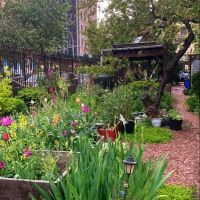Hope Steven Garden Introduce
In the bustling urban landscape of New York City, where concrete often dominates, finding a serene pocket of nature can be a true delight. Hope Steven Garden, nestled in the vibrant community of West Harlem, is precisely one such treasure. More than just a collection of plants, this beautiful community garden is a testament to the power of local initiative and collaborative spirit, offering a vital green lung and a beloved gathering space for residents. For New Yorkers looking to connect with nature, engage with their community, or simply find a tranquil spot to unwind, Hope Steven Garden is an exemplary destination.
This article is designed to provide a clear, engaging, and factual overview of Hope Steven Garden, specifically tailored for local users in the New York region. We'll delve into its rich history, its precise location and accessibility, the diverse array of services and features it provides, and what makes it such a cherished part of West Harlem. Drawing from publicly available data and enthusiastic customer reviews, we aim to highlight why this garden is recognized as "Beautiful garden" and a true gem within its neighborhood. Prepare to discover the unique charm and community spirit that flourishes at Hope Steven Garden.
Hope Steven Garden, also known as Hope Stevens Community Garden, is a thriving urban green space located in the Hamilton Heights area of West Harlem, Manhattan. It is one of New York City's more than 550 community gardens, a network of vital green spaces that transform vacant lots into vibrant community hubs. The garden is managed by dedicated community volunteers and is part of the Manhattan Land Trust, signifying its protected status as a public garden since 1999.
The history of Hope Steven Garden is deeply rooted in local activism and urban renewal. Like many community gardens across New York City, it emerged from a period of urban blight, transforming a neglected vacant lot into a productive and beautiful space. In 1986, when it was known as the West Harlem Group Assistance Garden, it was selected to participate in "Artists in the Gardens," a project of GreenThumb, the community gardening program sponsored by the New York City Department of Parks and Recreation. As part of this initiative, a stunning mural titled "Homage to Seurat: La Grande Jatte in Harlem" by artist Eva Cockcroft was painted on the building facing the garden. This mural, restored in 2009, remains a prominent artistic feature and a symbol of the garden’s enduring community significance.
Today, Hope Steven Garden is an abundant space, featuring not only a diverse collection of flowers but also vegetable plants, fruit trees (including peach trees and berry bushes), and a grape arbor. It also famously supports a cat colony, adding to its unique charm. The garden embodies the spirit of community engagement, with neighbors actively involved in its cleaning, landscaping, and daily maintenance. It is a testament to how local residents can come together to create and sustain a "beautiful garden" that enriches their urban environment, providing both environmental and social benefits.
Hope Steven Garden is conveniently located at 1656 Amsterdam Ave, New York, NY 10031, USA. This address places it firmly within the West Harlem neighborhood of Manhattan, specifically between 142nd Street and Amsterdam Avenue. Its precise location within the Hamilton Heights area makes it easily accessible to a large residential population and those frequenting the bustling Amsterdam Avenue corridor.
For New Yorkers utilizing public transportation, the garden is exceptionally well-connected. It is within a reasonable walking distance of several major subway lines. The A, B, C, D trains at 145th Street and the 1 train at 145th Street or 157th Street provide direct access from various parts of Manhattan and other boroughs. Additionally, numerous MTA bus routes run along Amsterdam Avenue and other intersecting streets, offering convenient options for local transit. The garden's position, often described as a "pocket park" or an "urban gardening green space," means it's seamlessly integrated into the neighborhood's fabric.
The garden's accessibility is further enhanced by its placement on a residential block, making it a natural extension of the local community. It provides a safe and inviting space where neighbors, especially children, can gather, play, and socialize. The presence of a fence helps define it as a secure area, allowing children to play freely. While a playground might be nearby, the garden offers a unique opportunity for children to learn about nature, cultivation, and the changing seasons through direct observation and participation. Its ease of access ensures that it serves as a central and cherished space for the community.
Hope Steven Garden, as an active community garden, offers a range of services centered around horticulture, recreation, and community building. Its primary focus is on providing a vibrant and productive green space for local residents:
Green Space for Relaxation and Respite: The garden provides a beautiful and tranquil environment for quiet enjoyment. It features seating areas, including benches, allowing visitors to relax, read, or simply enjoy the natural surroundings.
Horticultural Cultivation: A core service is the cultivation of diverse plant life. The garden is composed of vegetable plants, flowers, trees (including peach trees), berry bushes, and a grape arbor. This allows for both aesthetic beauty and the potential for food production for the community.
Community Building and Socialization: The garden serves as a central space where neighborhood members, especially children, gather to play and socialize. It's a place where older residents can chat, fostering a strong sense of community and intergenerational connection.
Volunteer Opportunities: The garden is staffed by "hard-working community volunteers who oversee the daily maintenance." This offers a direct service for locals to engage in gardening, contribute to their neighborhood, and learn about urban agriculture and horticulture.
Educational Value for Children: The garden functions as a unique educational site where children can learn about the changes trees, vegetable plants, and flowers undergo throughout the year, and experience the process of cultivation directly within their own community.
Space for Informal Gatherings: Neighbors often utilize the garden for informal gatherings, such as grilling hamburgers and hot dogs, contributing to its lively atmosphere.
Mural Viewing: The restored mural, "Homage to Seurat: La Grande Jatte in Harlem" by Eva Cockcroft, serves as an artistic and cultural service, enhancing the visual experience of the garden.
Food Sharing (Potential): Some community gardens provide opportunities for members to crop vegetables to share with neighbors in need, suggesting a potential for food-related community services, though specifics would depend on garden member initiatives.
It is important to note that as a community garden, it does not typically offer public restrooms or organized sports facilities. Its strength lies in its role as a living, breathing green space managed by and for the local community.
Hope Steven Garden boasts several key features and highlights that make it a truly special and cherished spot in West Harlem:
Lush and Productive Green Space: A primary highlight is its abundance of "vegetable plants, flowers, trees" and specifically mentioned peach trees, berry bushes, and a grape arbor. This diverse flora creates a vibrant and productive ecosystem, providing both aesthetic beauty and potential for fresh produce.
Iconic Mural: The garden features a significant mural, "Homage to Seurat: La Grande Jatte in Harlem" by Eva Cockcroft, originally painted in 1986 and restored in 2009. This large-scale artwork serves as a striking backdrop and a cultural focal point, adding to the garden's unique character and historical depth.
Volunteer-Driven Ethos: The garden is a powerful example of community self-management, "staffed by hard working community volunteers." This highlights the dedication of local residents who contribute their time and effort to maintain its beauty and functionality, fostering a strong sense of ownership and collective pride.
Home to a Cat Colony: A charming and distinctive feature is the garden's support for a cat colony. This adds an endearing element to the space, contributing to its natural, lived-in feel and providing a unique interaction for visitors.
Safe and Engaging Space for Children: With its fenced perimeter and focus on learning from nature, the garden provides a safe and stimulating environment for children to play, socialize, and connect with the natural world directly in their neighborhood.
Resilience and History: The garden's transformation from a vacant lot, including battling drug dealers to establish it, and its eventual protection by the Trust for Public Land, showcase its resilience and the enduring power of community action in New York City.
Informal Community Hub: It serves as a natural gathering place for neighbors, as evidenced by observations of residents grilling and chatting. This informal use highlights its role in fostering social connections and a strong neighborhood fabric.
The enthusiastic customer review, "Beautiful garden," perfectly encapsulates the visual appeal and positive sentiment evoked by these features.
As a community garden operating under the umbrella of NYC Parks' GreenThumb program and protected by the Manhattan Land Trust, Hope Steven Garden does not engage in commercial "promotions" or "special offers" in the retail sense. Its inherent "offers" are the invaluable, free benefits it provides to the community:
Free Public Access to Green Space: The most significant "offer" is the provision of a beautiful, well-maintained community garden that is entirely free and open to the public. In a dense urban environment like New York, consistent access to nature is a priceless amenity for mental and physical well-being.
Complimentary Educational Opportunities: The garden serves as a living classroom, offering free, hands-on learning experiences for children and adults about gardening, plant life, and urban ecology. While formal classes might not be explicitly advertised as "promotions," the opportunity to learn through observation and participation is always available.
Free Community Engagement: It provides a unique, free venue for community members to gather, socialize, and build connections. Informal barbecues and neighborly chats are common occurrences, fostering a strong sense of belonging.
Volunteer Experiences: The opportunity to volunteer and contribute to the garden's upkeep is a unique "offer." This provides a fulfilling way to engage with the community, learn practical gardening skills, and directly enhance a local public space.
Access to Fresh Produce (Seasonal/Volunteer Dependent): While not guaranteed, community gardens often share their harvests with volunteers and neighbors, providing access to fresh, locally grown vegetables and fruits during the growing season.
To stay updated on specific open hours (which are volunteer-dependent) or any community events like planting days or clean-ups, locals are encouraged to check for announcements posted at the garden gate or inquire with active garden members. Information may also be available through the Manhattan Land Trust or NYC Parks GreenThumb websites.
For inquiries about Hope Steven Garden, including information on visiting hours, volunteering, or community activities, the primary contacts would typically be through the garden's volunteer network or the managing land trust/program. Direct phone numbers for individual community gardens are often not publicly listed by NYC Parks, as they are volunteer-run entities.
Address: 1656 Amsterdam Ave, New York, NY 10031, USA
While a direct garden phone number isn't widely available, interested individuals can typically seek information or get involved by:
Visiting the Garden: Check for signs or bulletin boards at the garden gate, which often display open hours, contact information for garden members, or upcoming events.
Contacting the Manhattan Land Trust: As the owner/overseer of the garden, the Manhattan Land Trust can provide general information or direct you to current garden leadership. Their website might have contact details.
Manhattan Land Trust Phone: (212) 244-2288 (This is a general number for Manhattan Land Trust, which manages multiple gardens)
Contacting NYC Parks GreenThumb: GreenThumb is the program that supports community gardens in NYC. They can often provide information on how to connect with specific garden groups.
NYC Parks General Info: (212) 639-9675
Emailing the Garden (if available): Some garden groups have dedicated email addresses for inquiries, which might be found on signage or affiliated websites. One source indicates a potential email for involvement: contact A Garden Member now and tell us that you want to get involved.
It’s always best to check the garden's physical site for the most up-to-date information on open hours, as these are often dependent on volunteer availability.
Hope Steven Garden stands as a highly suitable and invaluable asset for locals in West Harlem, offering a unique blend of natural beauty, community spirit, and historical significance. Its suitability stems from several key aspects that directly enhance urban living.
Firstly, in a dense metropolitan area, this "beautiful garden" provides a much-needed tranquil oasis. It offers residents a serene space to unwind, connect with nature, and simply enjoy fresh air without having to leave their neighborhood. This easy access to greenery is crucial for mental well-being and offers a stark contrast to the surrounding concrete landscape.
Secondly, the garden's identity as a volunteer-run community space fosters a profound sense of ownership and connection among residents. It's a place where neighbors actively contribute to its upkeep and enjoy its fruits, both literal and metaphorical. This active engagement strengthens community bonds, encourages social interaction, and provides meaningful opportunities for residents to give back to their immediate environment. The presence of the mural further enriches this communal experience, adding an artistic and historical layer to the space.
Furthermore, Hope Steven Garden serves as an informal educational resource, especially for children, allowing them to learn about plant life, cultivation, and the natural world directly within their urban setting. The garden's history of transforming a vacant lot into a vibrant community hub also serves as an inspiring example of local resilience and collective effort. For New Yorkers in West Harlem, Hope Steven Garden is more than just a garden; it is a cherished, living testament to community vitality, a source of peace, and a beloved gathering place that consistently enriches the fabric of their neighborhood.
Hope Steven Garden Photos
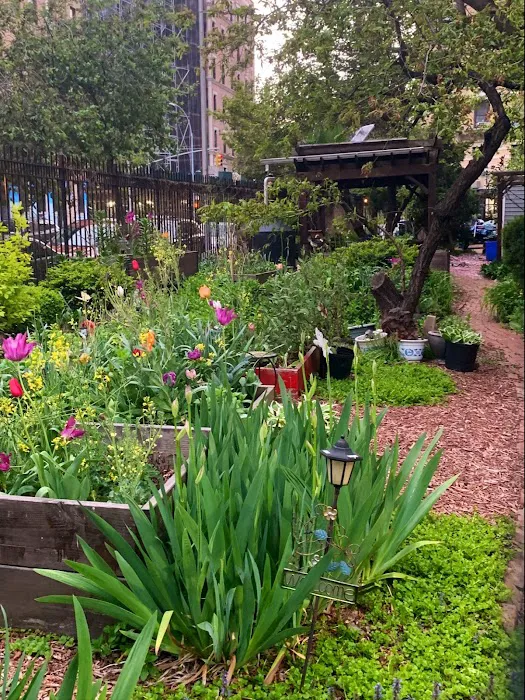
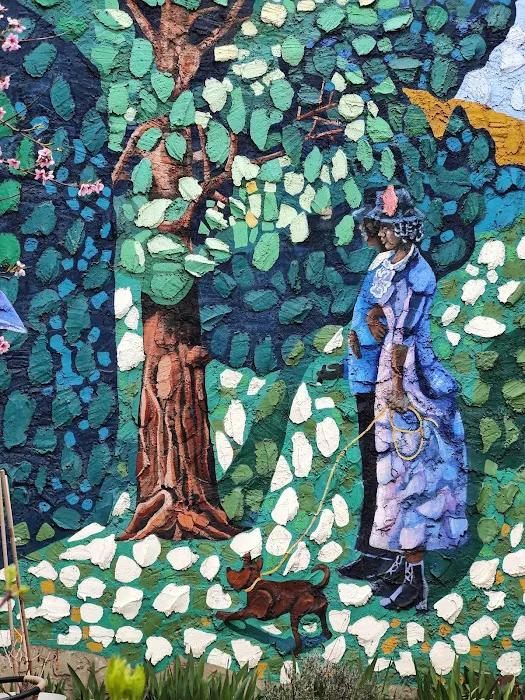
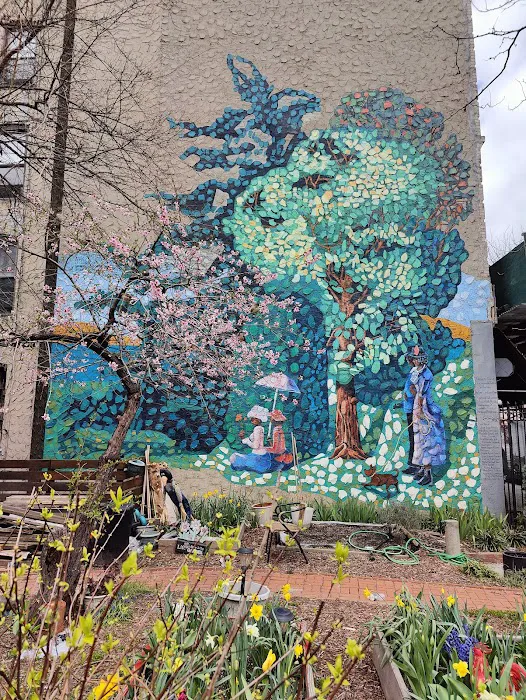
Hope Steven Garden Location
Hope Steven Garden
1656 Amsterdam Ave, New York, NY 10031, USA
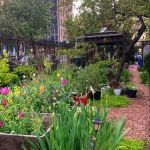 Hope Steven Garden
Hope Steven Garden1656 Amsterdam Ave
 Johnny Hartman Plaza
Johnny Hartman PlazaAmsterdam Av
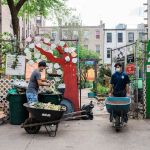 Frank White Memorial Garden
Frank White Memorial Garden506 W 143rd St
 475 NYC B&B
475 NYC B&B475 W 144th St
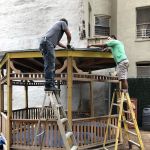 Serenity Garden
Serenity Garden526 W 146th St
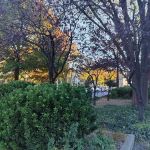 Broadway Malls
Broadway MallsNew York
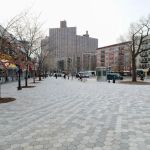 Montefiore Square
Montefiore SquareHamilton Place &
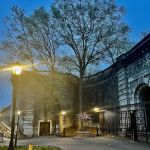 10031
10031New York
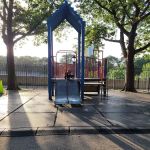 142nd Street Dog Run
142nd Street Dog Run675 Riverside Dr
 Hamilton Heights
Hamilton Heights514 W 136th St
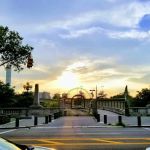 Riverside Valley Community Garden
Riverside Valley Community Garden699 W 138th St
 St. Nicholas Park Dog Run
St. Nicholas Park Dog RunUnnamed Road
 Travellers Haven B&B New York, NY
Travellers Haven B&B New York, NY516 W 135th St
Hope Steven Garden Reviews
Beautiful garden
Oct 23, 2021 · Connor Davis- Jun 09, 2022 · The Great Jimbosskii
More Scenic Spot
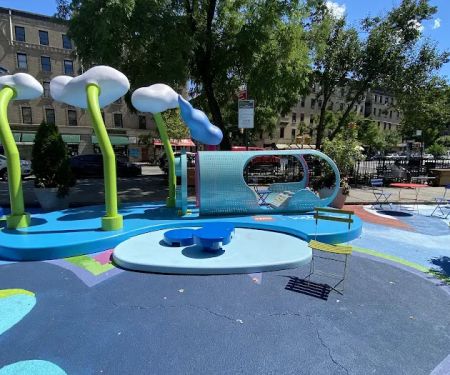 Johnny Hartman Plaza4.0 (120 reviews)
Johnny Hartman Plaza4.0 (120 reviews)Amsterdam Av, W 143 St and, Hamilton Pl, New York, NY 10031, USA
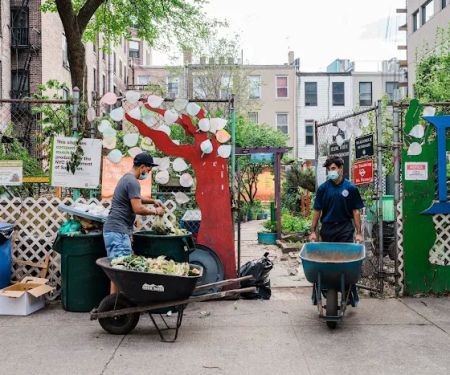 Frank White Memorial Garden4.0 (7 reviews)
Frank White Memorial Garden4.0 (7 reviews)506 W 143rd St, New York, NY 10031, USA
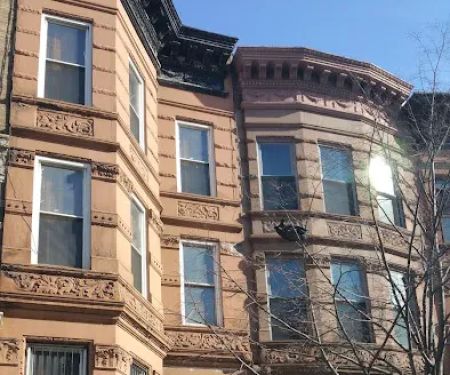 475 NYC B&B0.0 (0 reviews)
475 NYC B&B0.0 (0 reviews)475 W 144th St, New York, NY 10031, USA
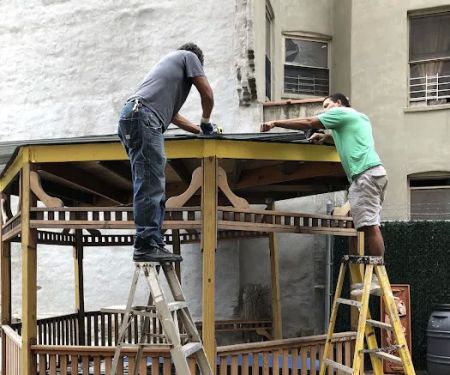 Serenity Garden3.0 (7 reviews)
Serenity Garden3.0 (7 reviews)526 W 146th St, New York, NY 10031, USA
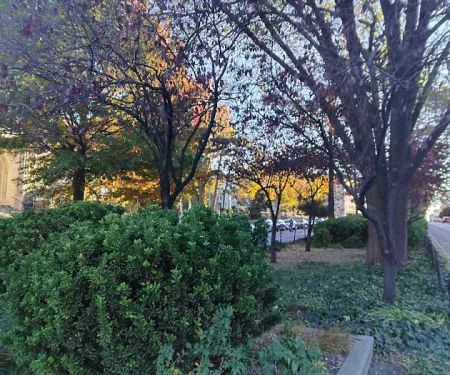 Broadway Malls4.0 (2 reviews)
Broadway Malls4.0 (2 reviews)New York, NY 10031, USA
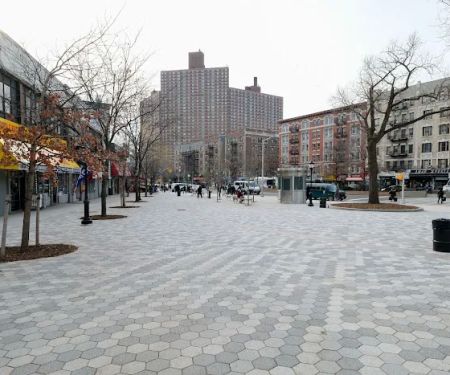 Montefiore Square3.0 (70 reviews)
Montefiore Square3.0 (70 reviews)Hamilton Place &, W 138th St, New York, NY 10031, USA
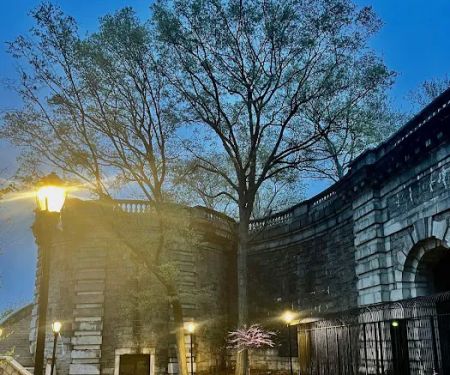 100310.0 (0 reviews)
100310.0 (0 reviews)New York, NY 10031, USA
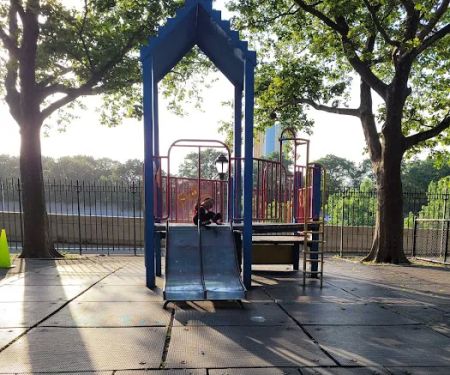 142nd Street Dog Run4.0 (187 reviews)
142nd Street Dog Run4.0 (187 reviews)675 Riverside Dr, New York, NY 10031, USA
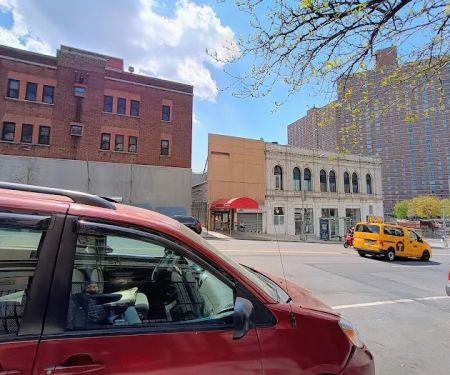 Hamilton Heights4.0 (5 reviews)
Hamilton Heights4.0 (5 reviews)514 W 136th St, New York, NY 10031, USA
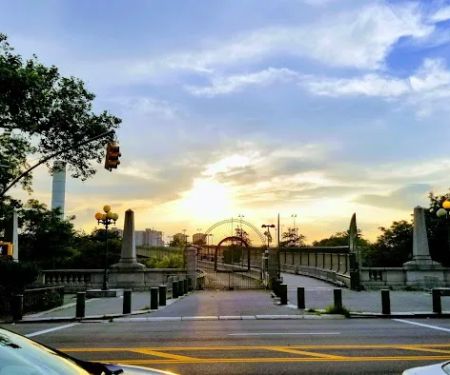 Riverside Valley Community Garden4.0 (130 reviews)
Riverside Valley Community Garden4.0 (130 reviews)699 W 138th St, New York, NY 10031, USA
 St. Nicholas Park Dog Run4.0 (140 reviews)
St. Nicholas Park Dog Run4.0 (140 reviews)Unnamed Road, New York, NY 10032, USA
 Travellers Haven B&B New York, NY4.0 (7 reviews)
Travellers Haven B&B New York, NY4.0 (7 reviews)516 W 135th St, New York, NY 10031, USA
Categories
Popular Camping Sites
 Coney Island Boardwalk Garden4.0 (75 reviews)
Coney Island Boardwalk Garden4.0 (75 reviews) The William Hotel Midtown, Sonder4.0 (555 reviews)
The William Hotel Midtown, Sonder4.0 (555 reviews) Shepard Lake Recreation Area0.0 (0 reviews)
Shepard Lake Recreation Area0.0 (0 reviews)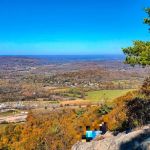 Stairway To Heaven4.0 (185 reviews)
Stairway To Heaven4.0 (185 reviews)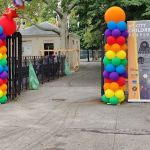 Howard Bennett Playground4.0 (152 reviews)
Howard Bennett Playground4.0 (152 reviews) Isle of Meadows4.0 (10 reviews)
Isle of Meadows4.0 (10 reviews)Trending Camping Blog Posts
 Top Group Travel Destinations in Europe: Best Places for Group Vacations
Top Group Travel Destinations in Europe: Best Places for Group Vacations How to Get Involved in Travel Clans for Social Travel: Explore Group Travel Opportunities
How to Get Involved in Travel Clans for Social Travel: Explore Group Travel Opportunities Best Travel Clans for Sustainable Travel
Best Travel Clans for Sustainable Travel Best Group Vacation Destinations for Friends: Ultimate Travel Ideas
Best Group Vacation Destinations for Friends: Ultimate Travel Ideas Travel Clans for Solo Travelers Looking for Company: Join Unique Travel Communities
Travel Clans for Solo Travelers Looking for Company: Join Unique Travel Communities Best Travel Clans for Women Traveling Together
Best Travel Clans for Women Traveling Together 
